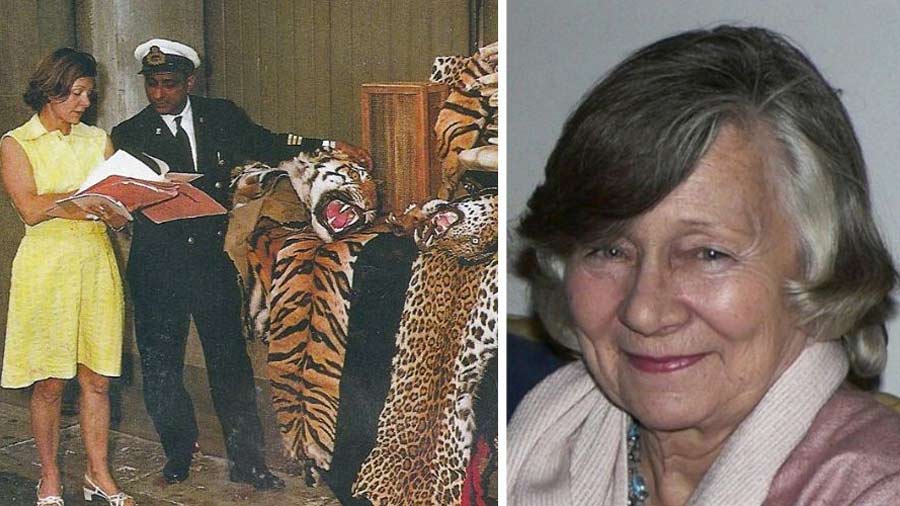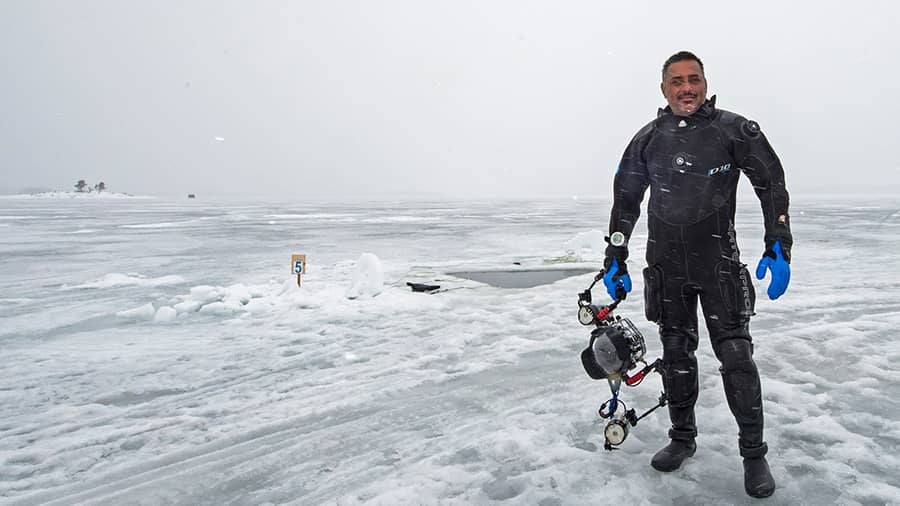The daughter of an ICS officer, Anne Wright’s childhood was spent in the jungles of Madhya Pradesh developing a keen love for wildlife. Awarded the “Member of the Order of the British Empire” in the early 1980s, the greater part of Wright’s life had been spent in environmental conservation projects and activism. She was a founding member and trustee of the World Wide Fund for Nature India and was instrumental in the passing of the Wild Life (Protection) Act of 1972. A member of the Tiger Task Force that sought to strengthen tiger conservation, she also created Kipling Camp in the Kanha National Park. She was a beloved member of the Tollygunge Club and has to her credit much of the verdure and the reverence for animal life that is characteristic of the club today. Survived by her daughter Belinda Wright, she passed away at the Kipling Camp on October 4, 2023.
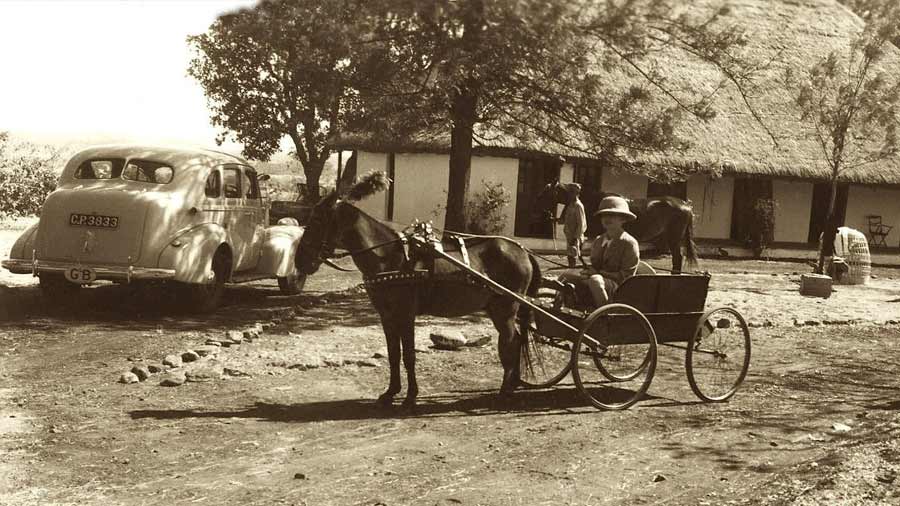
Anne at Chikli Koti, Chikalda, 1939 @Kipling Camp/ Facebook
My Kolkata spoke with environmental activist Bonani Kakkar who had worked with Wright at WWF India on several important projects. Kakkar reminisced about her decades-long friendship with Anne Wright as she gave us a glimpse into the person and activist that Wright had been.
Redefining education
Kakkar's earliest memory of Anne Wright goes back to when she joined the WWF-India in 1982 and Anne headed the Eastern Region. “My role involved education and project work, though the latter was loosely defined. The materials provided by the organisation had a Western orientation since their headquarters were in Geneva. While these materials were suited for those in urban areas, they proved challenging for rural and remote areas with national parks. Anne gave me the creative freedom to continue to collaborate with the Midnapore Patua to utilise their scroll paintings to convey messages about various environmental issues, including deforestation, the Sunderbans, and the causes of floods,” explained Kakkar.
This led Kakkar to work closely with a patua artist called Ranjit on the Sunderbans and the tigers. It proved to be a success and years later Ranjit was able to present his scroll to Prince Philip at a WWF anniversary dinner in Mumbai.
Wright was also supportive of Kakkar’s decision to organise nature camps for children. “I proposed that children from schools in Kolkata and Bihar should visit forests to better understand their significance. At that time, WWF lacked the funds for such initiatives, but Anne encouraged me to pursue it. She believed in my mission and recognised that one couldn't grasp the essence of wildlife through television alone. We organised a camp in Jaldapara during the early monsoon season. Some committee members expressed concerns about the rain, suggesting we cancel the camp but I insisted on it. In Jaldapara, we crossed a small stream into the central area, where the children discovered the droppings of a rare hare known as the Hispid Hare. It made them feel like wildlife researchers. However, soon it started raining and the stream transformed into a raging river, preventing us from crossing. Luckily, a group of Sainik School students from Bihar, who also happened to be scouts, swam across the river and secured ropes for the children to use as makeshift lifelines. This was an experience that the children remembered for years to come all because Anne gave her approval to pursue what I believed was right,” recounted Kakkar.
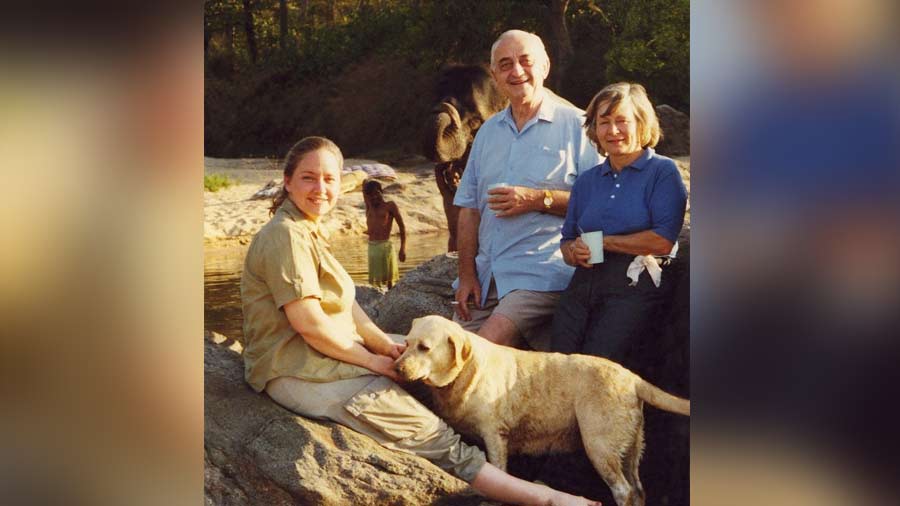
The Wright family had a home in Kolkata, but spent a lot of time in Kanha National Park’s Kipling Park, which Anne helped set up. In picture: Anne and her husband Robert (Bob) with a young Belinda Wright
‘Anne's ability to take quick action without hesitation set her apart’
“Anne's ability to take quick action without hesitation set her apart. Once, a mountaineer expressed concern about the Neora Valley, where the army planned to build a dam that threatened the river and biodiversity. I accompanied him to the Zoological Survey of India, where we garnered support from the deputy director. Eventually, the governor of West Bengal visited the area, acknowledged its beauty, and submitted a positive report. Anne and I then approached Fort William, securing a meeting with the general who oversaw operational matters. While the army initially defended the dam construction, we successfully persuaded them to abandon the project. As a result, Neora Valley now stands on the cusp of becoming a UNESCO World Heritage Site.
Anne also played a crucial role in persuading Prime Minister Indira Gandhi to support the conservation of Siberian Cranes and the issuance of Siberian Crane stamps. She showed how determination and questioning the status quo can achieve results,” noted Kakkar.
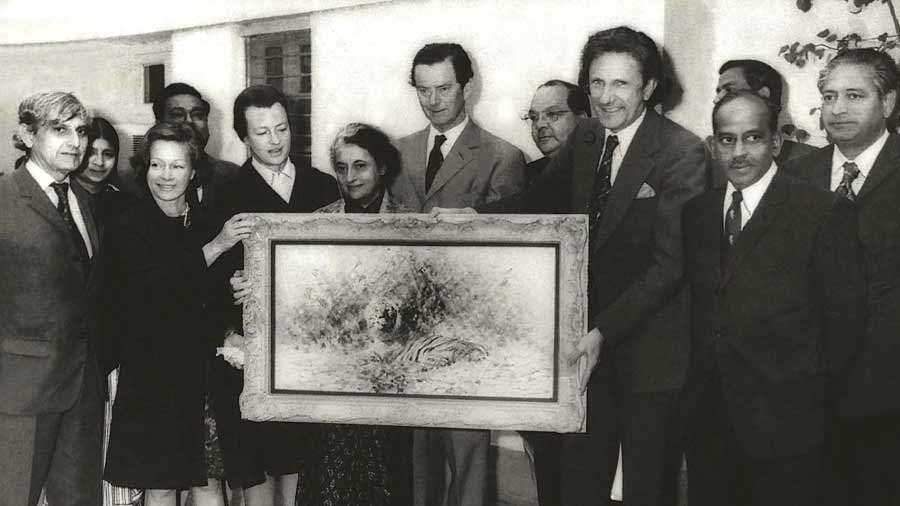
Anne Wright (second from left) with Indira Gandhi and others presenting ‘Tiger in the Sun’ to raise funds for Project Tiger in New Delhi on February 4, 1975 @Wildlife Protection Society of India (WPSI)/ Facebook
‘Anne Wright's impact often goes unnoticed’
“My friendship with Anne spanned 42 years, and I was privileged to be with her on her 90th birthday. Belinda, her daughter, extended a last-minute invitation, leading to our heartfelt reminiscences. We acknowledged that while many recognise the contributions of figures like Indira Gandhi, Anne Wright’s impact often goes unnoticed. Anne was persistent and proactive.
“I remember a trip to a beach in Odisha with two other researchers to observe Olive Ridley sea turtles laying eggs. The Odisha government had planted numerous trees on the beach as a buffer against storms, obstructing the turtles’ nesting. Thousands of turtles arrived, but due to limited space, they laid eggs haphazardly, leading to nest destruction by others. I immediately contacted Anne, and she swiftly engaged a secretary in Delhi, arranged a helicopter flight to survey the situation, and subsequently convinced the Odisha government to remove the trees,” said Kakkar.
An integral part of the Tolly community
Anne Wright and her husband Robert Hamilton Wright — far better known as Bob Wright — had been long-time members of the Tollygunge Club and he had also been the managing member of the club for 25 years. Even though she wasn't as active as her husband regarding the club’s affairs, her reverence for wildlife and nature has left a mark on all the members. Being in the heart of the city, the club is home to jackals — a fact that has amused visitors and members alike.
“Every evening, an iron bucket filled with raw meat and bones was left out for the jackals, a practice Anne diligently maintained. Anne also introduced various intriguing plant species to Tollygunge. The club was home to several snakes, all of which were spared thanks to Anne’s influence,” remarked the Kakkar.
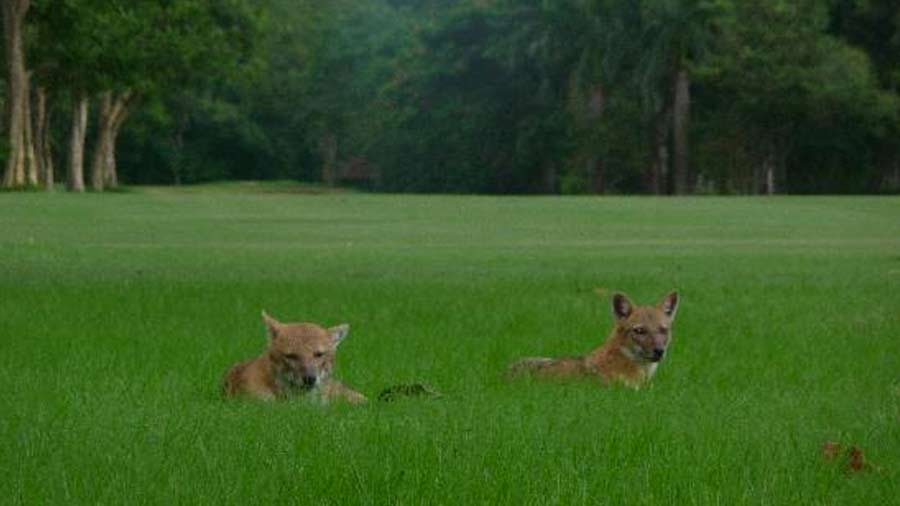
Two of the many jackals that live in and around Tollygunge Club
A brilliant legacy
During the COVID-19 pandemic, Wright suffered a stroke, and her daughter, Belinda, didn't bring her to Delhi but instead transported her to a hospital in Nagpur. There, Belinda learnt how to care for her mother before returning her to Kipling Camp, where Wright peacefully passed away. “Two months ago, Belinda asked me to share stories with Anne, whether about Neora or the turtles. Sometimes, we would notice a flicker, a sparkle in her eye, or a faint smile. Anne adored her dogs, and when she passed away at Kipling Camp, she was surrounded by her loyal canine companions. From Anne, I learned that advocating for your cause doesn't necessitate shouting or screaming; you just need to ask “why”. Her legacy survives with her brilliant daughter Belinda,” concluded Kakkar.
